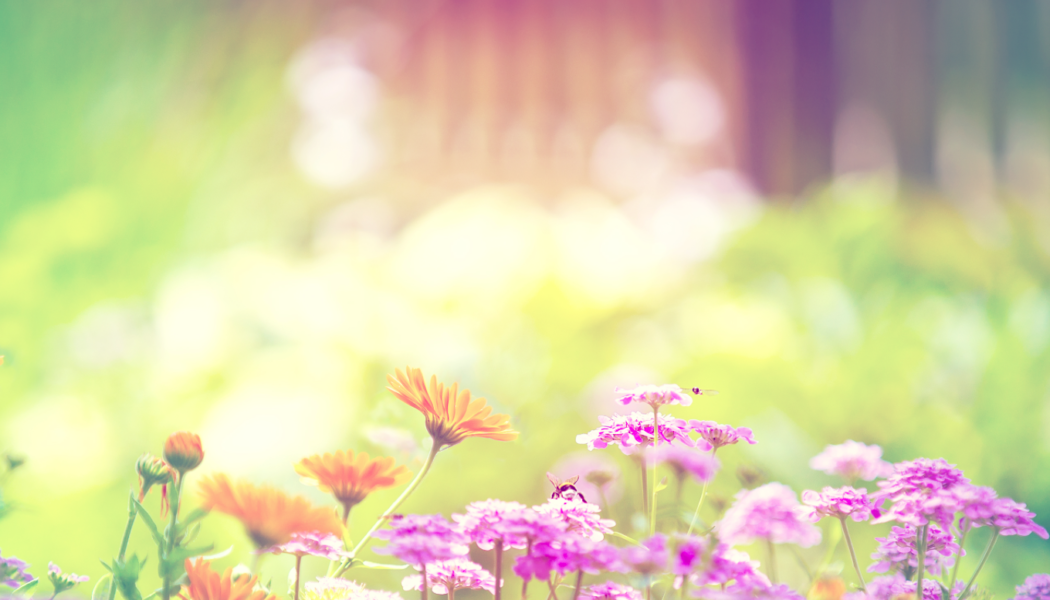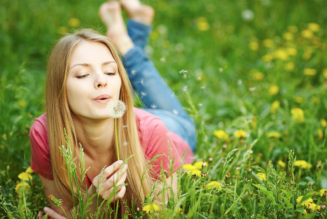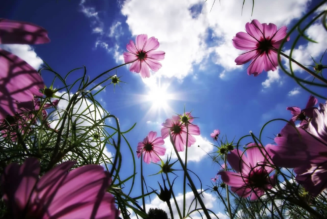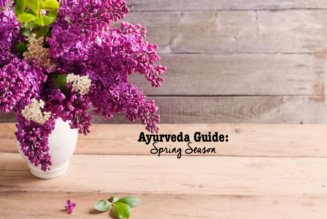Vasant Ritucharya
Introduction
After the chilly winter it’s that time of the year again – Yes, Spring season. Spring is certainly my favourite season of the year. As the spring season sets in, the earth looks lovely and charming. The trees put forth new leaves and the sight of beautiful flowers blooming brings a smile to all our faces. As a matter of fact spring is the season of beautiful flowers. But have we ever wondered what happens to our body in this season ??
During Spring the Climate gets warmer and the heat reduces the digestive power of body, As a result Kapha increases leading to various diseases like Cough, Cold, Allergies, Sinusitis, Indigestion to name a few. It is a known fact that Spring is the time of year for seasonal allergies. As the trees start to bloom and the pollen is released into the atmosphere, allergy sufferers begin their annual ritual of sniffling and sneezing. Each year, 58 million Americans fall prey to seasonal allergic rhinitis, more commonly known as hay fever. [1]
Many people are unable to enjoy spring as they land up having Allergies and many other problems. Fortunately Ayurveda,the ancient science of life has the solution. There is a concept of Ritucharya in Ayurveda , “Ritu” meaning Seasons and “Charya” meaning to follow a routine. Hence Ritucharya is the Seasonal Routine, by following the Seasonal lifestyle & diet people can stay away from seasonal diseases and can have a healthy life . As per Ayurveda, The duration from mid March to mid May constitutes the Vasant Ritu or Spring season.
Ayurveda hence advices certain Lifestyle modifications which could prevent people from getting the Recurrent Allergies, hay fever and Asthma
|
1. Exercise and Lifestyle modifications:
Regular Exercise and Avoid Sleeping in daytime can prevent kapha accumulation.
Exercise appears to have the advantage of being able to jump-start the immune system, and that can help reduce the number of colds one gets. With exercise, the number and aggressiveness of certain immune cells, such as the ones called natural killer cells, increase by as much as 50% to 300
Avoid exposure to direct Air is said to reduce kapha and also reduces the chance of being exposed to pollen and other allergen’s
Oil Massage and Dry massage should be done regularly. Herbal Bath with help of herbs like sandal wood which have a cooling effect also help in strengthening the body and improving the Immunity.
2. Diet :
It is advised to have easily digestible food which are low in calories during the spring season as the digestion is slow. Ayurveda believes that all the diseases are primarily due to a faulty digestion . It has now been proved that the Gastro intestinal system is a major organ of Immunity . The reason for this being that the defence of the body is vested largely in the lymphatic system and its lymphocytes. And A substantial part of the gastrointestinal tract is occupied by lymphoid tissue . The interaction between these cells of the lymphatic system and the threatening agent is the basis of defense in the gastrointestinal tract.[2]
Drinking Sips of hot water would also aid the digestion. Kapha is predominant during day time from 6am to 10 am so its best to avoid eating a heavy breakfast and is best suited if one has a light breakfast. It is best if one avoids cold, oily foods & excessive sweet or sour foods.
Consumption of Honey, Barley,roasted meat, mango juice are advice during the spring season. Honey has been shown to hamper the growth of food-borne pathogens such as E. coli and salmonella, and to fight certain bacteria, including Staphylococcus aureus and Pseudomonas aeruginosa [3] . Intake of Jowar (hordeum vulgare) and Barley also have been proved to improve the immunity [4]
3 . Herbs
A few Herbs which could be used to reduce kapha and fight the allergies during spring season are spices, which can be added to your food such as coriander, cumin, turmeric, onions and horseradish . Fresh ginger tea prepared by boiling fresh ginger in water also reduces the kapha , honey could be added to this tea.
Garlic: It is well known throughout history as a food that fights infections from bacteria and viruses. The BBC reported in 2007 that garlic can help prevent and fight the common cold. Allicin is one of the immune stimulating nutrients in garlic that is released when you cut, chop or crush the cloves. Garlic stimulates the activity of immune system cells that destroy cold and flu viruses. [5]
Onions: They contain quercetin, a nutrient that breaks up mucus in your head and chest while boosting your immune system.When the smell of raw onions makes your nose run and your eyes tear up, this stimulates your immune system to fight infection. Onions also contain allicin which slows down and kills a variety of viruses and bacteria. The pungency of onions increases your blood circulation and makes you sweat. This effect is helpful during cold weather to prevent infections and to sweat out a cold or flu. [5]
Ginger: Has properties which help in reducing fevers, soothes sore throats, and encourages coughing to remove mucus from the chest. The chemicals shagaols and gingerols in ginger give it that spicy kick that stimulates blood circulation and opens your sinuses. Improved circulation means that more oxygen is getting to your tissues to help remove toxins and viruses. Research from the Toyama Medical and Pharmaceutical University in Japan indicated ginger has the ability to help prevent and treat flu infections. [5]
Horseradish: strengthens your immune system and increases blood flow to parts of your body irritated by cold and flu infections to remove wastes. This pungent food encourages you to flush out infected fluids through sweat and increased urination. [5]
4. Yoga
Yoga postures benefit the immune system by increasing the circulation of blood cells, decreasing stress hormones, and stimulating the lymphatic system. A recent study suggests yoga may even strengthen an immune response at a genetic level.
|
During spring certain Poses To Aide Digestion can be adopted : A few examples being Trikonasana (Triangle pose), Paschimottanasana (Forward bending pose) , PavanaMuktsana , Matsyendrasana and Ushtrasana (Camel pose)
Other Poses like Vasisthasana (Side Plank Pose), Virabhadrasana (Warrior Pose ) and Bhujangasana(Cobra Pose ) can also be done to reduce kapha
Conclusion
According to research the metabolic and temperature response to mild cold were investigated in summer and winter in a moderate oceanic climate. The average metabolic responses during cold exposure were significantly higher in winter as compared to summer. Fast changes in temperature are probably may produce a number of physiological changes in the body. Rapid drops may affect blood pH, blood pressure, urination volume, and tissue permeability.
The eating habits of workers may vary according to the season of the year and corresponding work schedule. The effects of biological variations of platelet counts were investigated in three cities of China. Platelet counts in healthy subjects were significantly higher in summer than in winter. It was already reported that levels of physical activity vary with seasonality. Hormone secretions are periodic variation release that may also be influenced by seasonal variation.[6]
Hence following the above said regimen can help the body adapt to the seasonal variation occurring during Spring, as a result it can prevent the occurrence of Allergies and other seasonal disorders.
1. https://www.webmd.com/allergies/guide/spring-allergies
2. https://www.britannica.com/EBchecked/topic/1081754/human-digestive-system/45379/The-gastrointestinal-tract-as-an-organ-of-immunity
3 https://www.webmd.com/diet/medicinal-uses-of-honey
4. Barley MLA Immune Receptors Directly Interfere with Antagonistically Acting Transcription Factors to Initiate Disease Resistance Signaling
5. https://healthfree.com/blog/blog/5-natural-foods-to-naturally-boost-your-immune-system-foods-for-cold-and-flu/
6. Singh Pramod et al / IJRAP 3(1), Jan – Feb 2012




![Ayurveda Guide For Spring Season [Vasanta]](https://healthyayurveda.com/wp-content/uploads/2022/03/Spring-Intro-on-cycle-wheel-327x219.png)